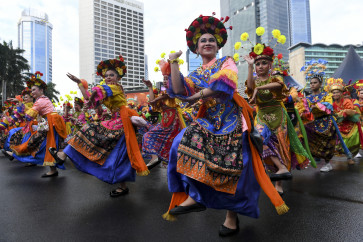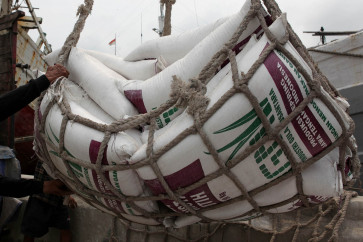Popular Reads
Top Results
Can't find what you're looking for?
View all search resultsPopular Reads
Top Results
Can't find what you're looking for?
View all search results183 Indonesian migrants deported from Malaysia
As many as 183 Indonesian migrant workers from West Nusa Tenggara (NTB) have been deported from Malaysia for allegedly violating residency and labor rules
Change text size
Gift Premium Articles
to Anyone
A
s many as 183 Indonesian migrant workers from West Nusa Tenggara (NTB) have been deported from Malaysia for allegedly violating residency and labor rules.
'They arrived in Mataram on Monday evening. After collecting data on the workers and giving them instructions, we sent them home,' M. Zaenal, head of protection and placement of Indonesian migrant workers at the NTB administration, said in Mataram on Tuesday.
He said as of November, more than 2,000 Indonesian migrant workers from NTB had been deported from Malaysia due to residency and labor permit violations.
Zaenal said most of the workers deported departed for and worked in Malaysia illegally, without the consent of a manpower placement agency (PJTKI).
In some cases, the workers departed for Malaysia with the consent of PJTKIs but their statuses later became illegal due to various reasons, such as running away from their employers' houses or working for a new employer without the proper documentation.
'All of the workers deported were from the informal sector. They worked on palm oil plantations,' said Zaenal.
'Some of them were returned home lacking residency and labor documents while a small number were allegedly involved in legal cases. They were sent home after enduring their punishments,' he went on.
According to Zaenal, the number of Indonesian migrant workers from NTB deported from Malaysia this year had increased compared to the 1,122 recorded last year.
Overall, however, the number of NTB workers involved in legal cases in Malaysia is relatively small compared to the total number of worker placements, which reaches between 35,000 and 50,000 people per year.
Almost 75 percent of migrant workers from NTB have only completed up to elementary school education, with some dropping out of school, while others have junior high school education. Only a small number of them complete senior high school education.
'Their educational backgrounds are very low, especially those who work in the informal sector, whereas according to existing regulations, a migrant worker must complete education to the level of at least junior high school,' said Zaenal. (ebf)










